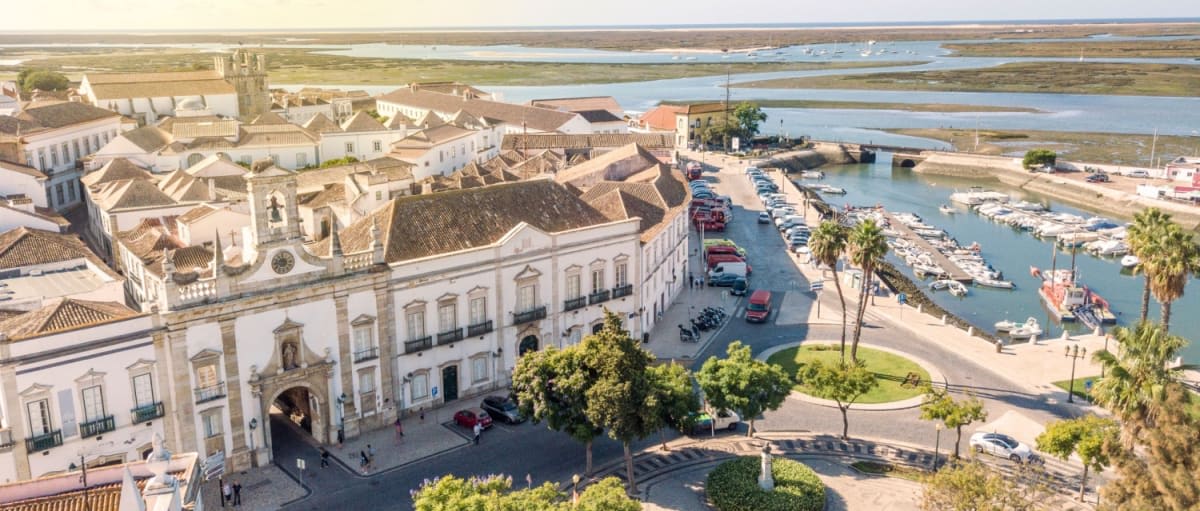Whether you’re buying a rustic farmhouse in the Alentejo or a modern apartment along the Algarve coast, a property survey in Portugal is one of the most important – yet often overlooked – steps in the purchase process. While not a legal requirement, a professional survey gives you the confidence that what you’re buying is structurally sound, free from hidden issues, and accurately represented in the contract. For many international buyers, this independent assessment can mean the difference between a secure investment and costly surprises.
Portugal’s property market is appealing for many reasons – affordability, characterful homes, and a relatively straightforward buying process. But with that charm comes variation: construction quality, renovation standards and property conditions differ widely, especially between rural and urban areas. That’s why taking time to assess the physical condition of your chosen property, just as you would with its legal status, is essential.
Below, we explain how a property survey in Portugal works, what types of inspections are available, how to find a reliable surveyor, and what to expect from your final report.
Whether you’re buying an older home that’s seen decades of wear or a brand-new build in a coastal development, this information will help you approach your purchase with greater clarity – and avoid unexpected bills after the keys are in your hand.
Download the Portugal Buying Guide
Contents

Legal due diligence
Having an independent lawyer during your property purchase in Portugal is essential. Their responsibilities include drafting contracts and carrying out legal due diligence on the property you are considering. They will verify that the property has the necessary licenses, check for any outstanding debts, ensure proper ownership, and confirm that all documentation is up-to-date.
If you plan to renovate, make significant alterations, or lease the property, informing your lawyer is crucial. They can provide guidance on planning permissions and navigate local authority regulations more effectively.
After all, there may be features to the property that are fine if you choose to live there but that need to be altered if you plan to rent.
For a closer look at the purchase process, claim your free copy of our Portugal Buying Guide:
Download the Portugal Buying Guide
Structural survey
While conducting a structural survey is not a legal requirement in Portugal, it can be immensely beneficial. Many international buyers opt for this assessment for added reassurance regarding their investment. A thorough survey can also serve as a powerful bargaining tool during negotiations. If defects or faults are uncovered, you can request the seller to make repairs or negotiate a lower price to cover future repair expenses.
Note that certain areas, such as roofs or plumbing, might not be easily accessible for comprehensive assessment, so be prepared for potential limitations.
Types of inspections: structural and technical
Structural inspections focus on the overall condition of the building, examining critical elements like the roof, walls, and foundation for any defects. Technical inspections assess utilities including electrical systems, plumbing, and heating. Identifying existing or potential issues can prevent costly repairs down the line.
Many international buyers consult qualified builders or rely on connections for these evaluations, with their estate agents often providing recommendations. However, be mindful that agents may not be completely unbiased in this process.
Finding a surveyor in Portugal
Fortunately, the Royal Institution of Chartered Surveyors (RICS) operates in Portugal, ensuring access to qualified professionals. You can also browse English-language websites or local newspapers for listings. Connecting with local builders can provide informal evaluations of the property and can yield favourably priced quotes for any renovations planned before purchase.
Property surveys in Portugal are generally affordable, typically costing no more than €1,000 for a comprehensive evaluation.
Key considerations for new-home buyers in Portugal
Newer properties can still have issues, so if you’re considering a new development, speaking to potential neighbours can provide insight into building quality and potential concerns. If a warranty is in place, ensure that your lawyer verifies the warranty provider’s ongoing business status.
It’s important to remember that being a relatively new home doesn’t exempt it from problems that can occur in older homes, such as dampness or mould, especially during the wet winter months. This is often not evident for buyers visiting during the summer.
Understanding inspection reports and recommendations
After the surveyor conducts the inspection, you will receive a detailed report outlining the condition of the property. Typically, these reports are drafted in Portuguese, thus hiring an English-speaking surveyor or employing a translation service is advisable for comprehending the findings fully.
The survey should assess:
- The building’s structure, including the foundation, ground conditions, joints, and potential issues like cracks, water stains, and damp.
- Checks for vermin, termites, rot, and fungi, depending on the surveyor’s services.
- Plumbing systems, inclusive of air-conditioning and heating installations.
- Electrical systems, ensuring compliance with modern standards, including the permanent installation of smoke and carbon monoxide detectors.
The final report should be clear and user-friendly, providing insights into necessary repairs which can be relayed to a builder. Armed with this report, you will be in a strong position to negotiate a price reduction or address any future issues proactively.
Once you’ve arranged your property survey, it’s time to focus on the next stages. Our guide on how to buy property in Portugal explains every step of the purchase process in detail, while our article on where to buy property in Portugal will help you explore the right locations for your lifestyle or investment goals.
Frequently asked questions about property surveys in Portugal
No, surveys are not legally required in Portugal, but they are highly recommended for buyers – especially those unfamiliar with local construction standards.
Survey costs vary depending on the size and complexity of the property, but most comprehensive surveys are available for under €1,000.
A structural survey evaluates the integrity of the building’s foundations, roof, and walls, while a technical survey inspects the condition of plumbing, electrical systems and heating installations.
Yes. Many RICS-qualified surveyors and local professionals speak English or offer translated reports. Hiring someone familiar with overseas buyers is ideal.
Yes. Even new homes can present issues such as damp or poor ventilation. Surveys can also confirm that the developer’s warranty is valid and the building meets current standards.









